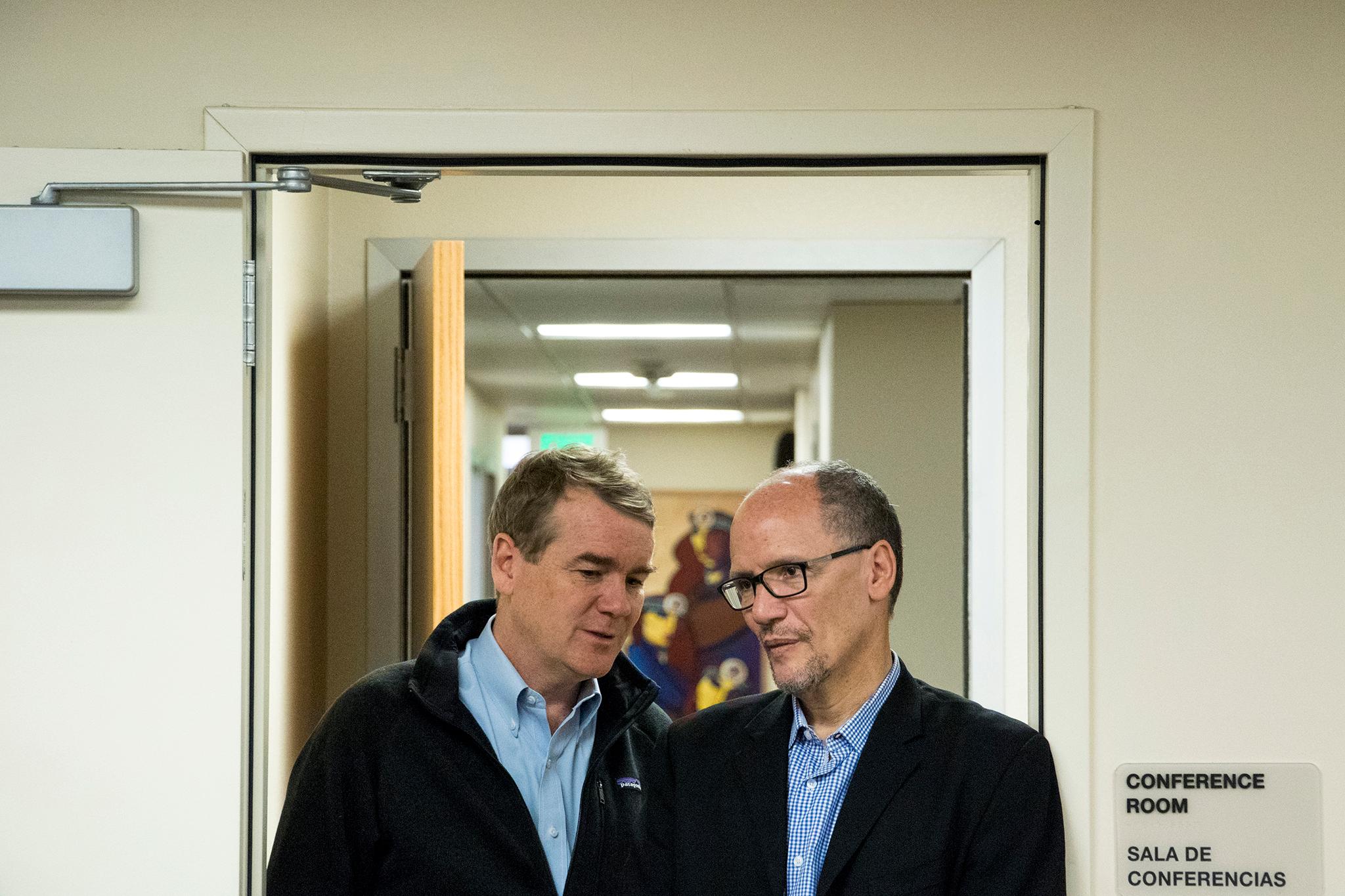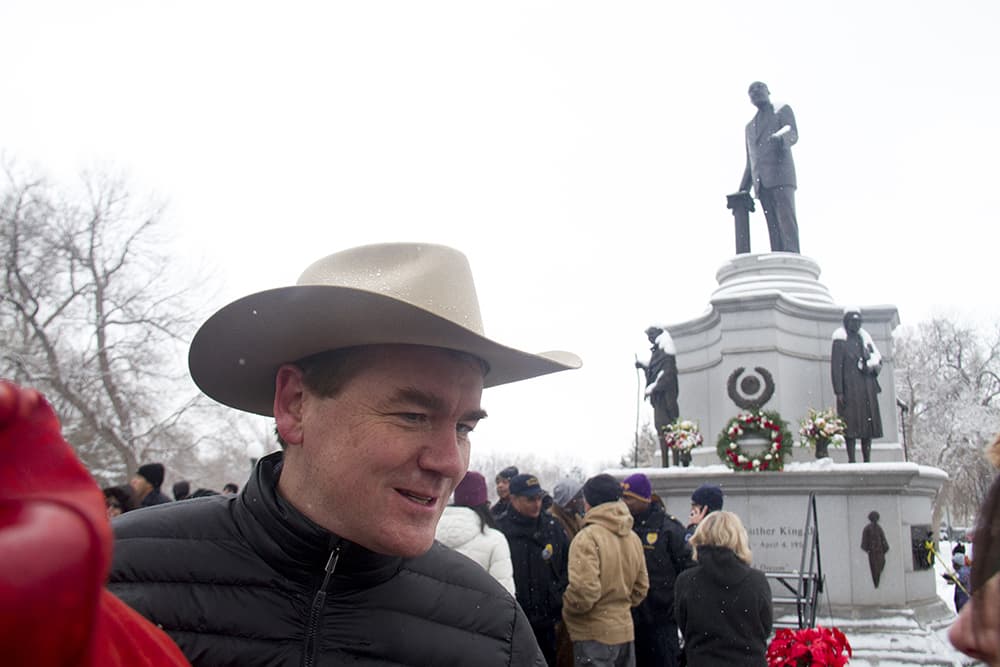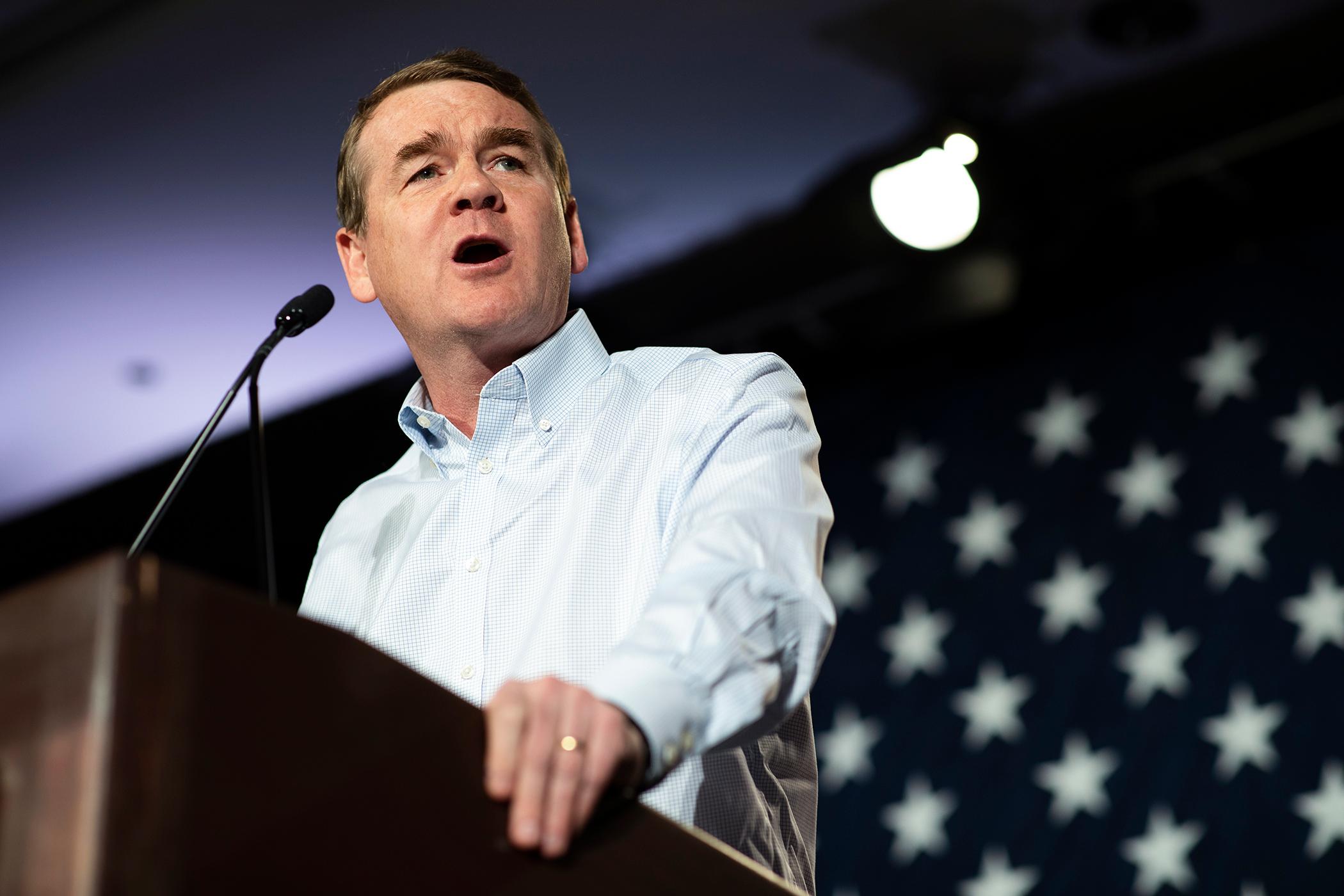As U.S. Sen. Michael Bennet inches closer to announcing a presidential run, the number of lanes a Democratic candidate can move into in the crowded race for the White House is getting smaller.
At least that's how Paul Teske, dean at the CU Denver's School of Public Affairs, sees Bennet's path ahead as the senior senator from Colorado considers jumping into a field that seems to grow by the week.
"There aren't that many lanes left," Teske said. "I feel like he's aiming for an interesting kind of mix, that he's a senator, has been for a decade, but (will suggest) 'I would want to change the way things work in D.C.'"
Bennet, 54, has served in the U.S. Senate since he was appointed in 2009, replacing Ken Salazar. He was later elected for a full term in 2010. Before serving as a senator, Bennet served as Denver Superintendent of Schools, from 2005 until his appointment to the Senate.
Teske said Bennet will likely focus on the dysfunctional state of Congress and suggest his experience gives him an upper hand in solving the gridlock. He will point to his work in Congress and examples of building bipartisan support, perhaps citing his work in the so-called Gang of Eight, a bipartisan group that helped write an immigration package in 2013.
"I don't know if that's a lane, or a brand or an approach ... but it could set him apart a bit," Teske said.

Bennet would crash a party that includes his friend and former boss John Hickenlooper, for whom Bennet served as chief as staff while he was mayor. It might be easier for Bennet to separate himself from The Other Guy From Colorado, who's settled on a folksy but pragmatic approach to his candidacy.
Setting himself apart from Hickenlooper should be straightforward. Bennet could focus on his record on environmental issues, as he's backed legislation supporting public lands and opposed President Trump's interior secretary nominee on environmental grounds, Teske said.
Voters will take notice too: Teske said Hickenlooper faces opposition from Democrats in Colorado who refute his perceived cozy relationship with oil and gas.
One local strategist said Bennet's entry won't have a "catastrophic" effect on Hickenlooper's chances.
But it will bring to light another potential hurdle for both candidates.
Ian Silverii, executive director of the progressive advocacy group ProgressNow Colorado, said a party that's moving toward having more women and people of color in its ranks should have nominees reflecting that shift.
"I have a hard time seeing the nominee for president for the Democratic Party being another white guy," Silverii said.
Teske thinks Bennet could "cultivate" a Mr. Smith Goes To Washington approach, suggesting he's a normal guy who feels lucky to have won a senate race and now wants to fix the terrible things he sees. He can, unlike Hickenlooper, make a legitimate claim to knowing how Washington works because he's already worked there.
That stands in contrast to the way the average American may have heard of Bennet -- as a fiery speaker who likes raising his voice in the Senate. In January amid the government shutdown, a video of Bennet loudly criticizing U.S. Sen. Ted Cruz of Texas went viral on Twitter, resulting in some immediate speculation about Bennet's future. (To be fair, he had already suggested he was interested in running by then.) He took to the Senate floor for more passionate remarks this week.
"I imagine that kind of catalyzed it and gave him a sense that, yeah, I can really do this," Teske said.
Silverii agrees that the speech "launched him into the national spotlight." Among the many things Bennet yelled about was what he called the "medieval wall," referring to one of President Trump's signature goals. Silverii thinks this means Bennet could make immigration reform a top priority for his presidential campaign.
This week, Bennet made another, much more somber announcement: He has been diagnosed with prostate cancer.
He confirmed for Denverite's partners at Colorado Public Radio that he still intends to run for president if he is cancer-free after surgery.
In a separate statement, he said that while hearing this kind of news is never easy, the cancer was detected early, giving him a good prognosis. He is scheduled to have surgery in Colorado during the Senate recess.
During an appearance on Meet the Press on Thursday, he said his family was supportive of his decision.
"The best excuse for not running would be this," Bennet said on the program Thursday. "And that's not how I felt. I felt like, you know what, this is something I really want to do. I think I've got something to contribute."

Bennet will need to make his decision by this month, at least if he hopes to join other candidates in the party's first debates.
Under guidelines from the Democratic National Committee, in order for candidates to participate in the debate, they must get at least 1 percent support in three polls or receive campaign contributions from at least 65,000 unique donors.
For some context, Hickenlooper's campaign last month said they had raised $1 million in less than 48 hours. While those numbers were reported days after Hickenlooper formally announced, it's still a drop in the bucket compared to fundraising hauls from some of the more prominent candidates, including Sen. Bernie Sanders, who as of this week has raised more than $18 million.
What's next?
Bennet will visit New Hampshire this weekend, attending gatherings and house parties, as well as making a stop at a school to meet with students and teachers. It marks his second visit to the state, which is home to the country's first primary and is a key viability test for candidates.
The congressional recess, during which he plans to have surgery, begins next week.














